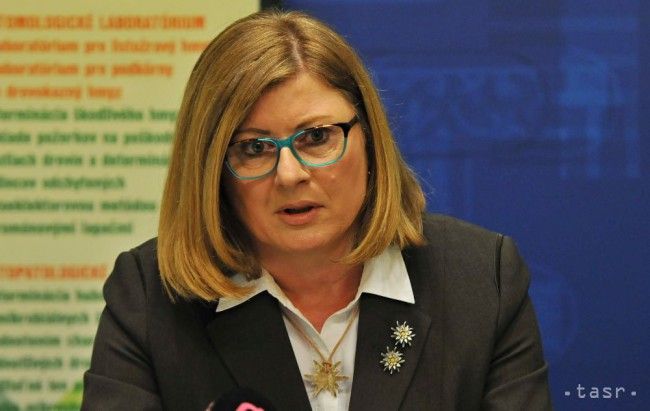Matecna: Veterinary Care Act Priority of Agriculture Ministry in 2018

Bratislava, January 9 (TASR) – The priority for the Agriculture and Rural Development Ministry in the sphere of legislation in 2018 will be to pass a Veterinary Care Act, which will bring the protection of animals in Slovakia up to the level of cultured countries, as animals will no longer be classified as things, said Agriculture Minister Gabriela Matecna (a Slovak National Party nominee) at a press conference attended by SNS caucus chair Tibor Bernatak on Tuesday.
Another priority this year will be to launch the so-called green diesel project. “We’ll present the entire project next week and unveil its outlines. It shouldn’t be tax relief, but I don’t wish to get ahead of myself because the Finance Ministry will need to comment on this one as well,” stated Matecna. The support is expected to equal €20-40 million, with the ministry determined to “fight for farmers to receive money for systemic measures as early as this year”.
Matecna claimed that the priority in 2017 was the quality and safety of food, particularly with respect to foreign food scandals. “Support for Slovak food, fighting double standards in quality at the pan-European level … the National Food Catalogue, systemic measures in forestry, rural development and many other issues were dealt with by the ministry throughout 2017 to the benefit of Slovak agriculture, the food industry, forestry and rural development,” she declared.
In early 2017, by virtue of rapid measures introduced by the State Veterinary and Food Administration, the ministry managed to protect various sectors of Slovak commercial livestock breeding from the threat of bird flu.
In the spring of 2017, Slovakia was one of the first EU members to draw attention to quality failings in Brazilian meat, with inspectors also carrying out more than 45,000 inspections during the scandal centred on Dutch eggs that contained Fipronil.
The ministry was also intensely involved in the fight against double standards in quality in the EU, efforts that resonated among top EU representatives. Under consistent pressure, some producers began to modify and unify their production formulas.
Changes were also introduced in forestry management, with new policies in place aimed at ensuring that more timber finds its way to domestic processors and that added value remains in the country. The ministry presented a National Memorandum on Forests as a systemic measure to protect and manage forests. In addition, new legislation on timber was submitted.
“Two groundbreaking pieces of agriculture legislation were shepherded through Parliament. Constitutional legislation defined land as a non-renewable natural resource that falls under special protection from the state and society. Another significant legislative change was an amendment to the Agricultural Land Rental Act, which will put a lid on speculators and provide support to small and medium-sized farmers,” said Bernatak.



